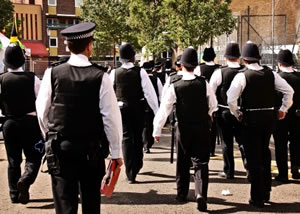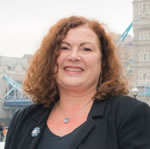Borough Police Forces to Be Scrapped in Radical Shake Up
Council says that decision puts public accountability at risk
The Metropolitan Police have announced radical changes to the structure of policing in the local area.
Police in four local boroughs are to be merged into one Basic Command Unit (BCU. Wandsworth, Richmond, Merton and Kingston will be the first to be subsumed along with another unit in Ealing, Hounslow and Hillingdon at the start of a roll out of the new structure over the rest of London in the next 12 months in which 32 borough services will be replaced by 12 BCUs.

Each BCU will be led by a chief superintendent who will be the BCU Commander. The Met claim that with a BCU, people, buildings and resources will be shared across the borough boundaries meaning greater flexibility in how these are used. It is not known at this stage who the new BCU commander will be or where he or she will be based.
The move is part of a programme by the Met to make make savings of £325m by 2021/22. Police officer numbers are expected to fall to 30,000 by April, and further by 2021.
A statement issued by the Met says, “We need to plan for a future with less, and become more resilient so we can continue to meet our financial and operational challenges, and our current and future policing challenges - terrorism and safeguarding in particular. Without significant changes in how we manage our resources we would be unable to meet these head on.
“As well as saving money and increasing efficiency, we want to invest in other areas of policing which the new model will enable us to do more effectively. Increasing community confidence is a priority and these changes will build on the success of Safer Neighbourhoods, where local officers are visible in each London ward.
“We have met our commitment to put two Dedicated Ward Officers (DWOs) and one PCSO in every London ward. These officers work with local people on local priorities and are not taken away to help with policing elsewhere in London.”
Observers have argued the Mayor’s change will make senior local police officers less accountable and much more remote from the communities they serve and make it harder for them to focus on local issues and concerns.
 Wandsworth council is angered by the police chiefs merger, Cllr Cook (pictured left) said: “Unfortunately the Mayor has not yet listened to the concerns and misgivings that many of our residents feel about this policy change. Instead of serving a population of around 320,000 people, our new shared commander will be responsible for managing the day-to-day policing needs of around 900,000 Londoners.
Wandsworth council is angered by the police chiefs merger, Cllr Cook (pictured left) said: “Unfortunately the Mayor has not yet listened to the concerns and misgivings that many of our residents feel about this policy change. Instead of serving a population of around 320,000 people, our new shared commander will be responsible for managing the day-to-day policing needs of around 900,000 Londoners.
“And instead of covering a 13 square mile patch, he or she will now have to look after a geographical area that’s five times bigger, stretching to almost 66 square miles. This new management structure will inevitably make senior officers more distant and less accountable to the communities they serve and less able to concentrate on important local issues.
“And unlike anywhere else in the capital, our chief superintendent will also have to cover three other boroughs, each with their own needs and priorities and their own very distinct local problems. It is not too late for the Mayor to pause and reflect carefully on whether or not he should proceed with this change. We are today repeating our call for him to reverse this decision and abandon this plan to over-stretch our local police commander.”

Leonie Cooper AM
Local Assembly Member for Merton and Wandsworth, Leonie Cooper AM responded to the announcement: "The Mayor has a major task in grappling with large scale government cuts, but it’s reassuring to see that in making those savings we’re not seeing a reduction in frontline staff. In fact, we’ll see an increase in bobbies on the beat with the Mayor increasing local officers to at least two in every ward in London.
“We know that the pilot mergers had some serious problems, not least in terms of increased response times, and we raised concerns with the Mayor and the Commissioner. It’s clear a lot of work went into ironing out those issues.
This will be a gradual roll out, but we’ll be monitoring the situation carefully to ensure enough preparation goes in so that any problems that do arise can be pre-empted and addressed at the earliest opportunity. I am confident that the prioritising of officers in our communities will see Londoners kept safe.”
BCUs will also bring together the investigation of these crimes and deploy specialist officers and detectives directly to the scene of serious incidents at an earlier stage. The Met says this means they can set the investigation strategy early on and make contact with the victim, reducing the number of different officers they have to deal with.
With calls to 999 and 101 on the rise, the new BCU structure should see more officers responding to emergency calls across borough boundaries to fit with local needs and help those people who need us the most.
The BCU model has been tested in two areas since January 2017, bringing together Barking & Dagenham, Redbridge and Havering boroughs; and Camden and Islington boroughs.
Leading the work is Deputy Assistant Commissioner Mark Simmons. He said. "Local policing is at the heart of what the Met does every day, and we will improve it further by offering a service that is more personal and responsive to the needs of Londoners.
"BCUs will allow us to put first victims of crime and those people who need us the most. Our new structure will also give us the resilience and consistency we need across the whole of London, so we can continue to respond to large scale incidents and meet the financial and operational challenges we are facing."
The 12 Basic Command Units (BCUs) are:
Hammersmith and Fulham, Kensington and Chelsea, Westminster,
Kingston, Merton, Richmond, Wandsworth
Bromley, Croydon, Sutton
Bexley, Greenwich, Lewisham
Barking and Dagenham, Havering, Redbridge
Ealing, Hillingdon, Hounslow
Lambeth, Southwark
Enfield, Haringey
Hackney, Tower Hamlets
Camden, Islington
Barnet, Brent, Harrow
Newham, Waltham Forest
February 13, 2018